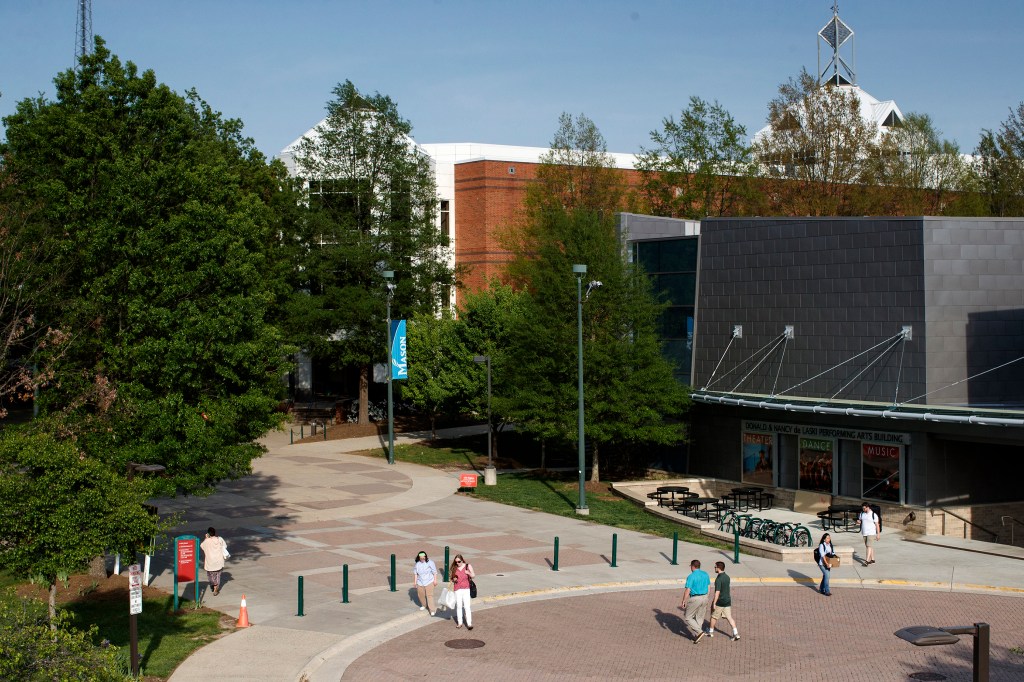Much has been written about the attacks by President Donald Trump, Gov. Glenn Youngkin and Attorney General Jason Miyares on Virginia’s public universities. A number of Virginia state senators sued in Fairfax Circuit Court concerning Youngkin’s recent appointments to the boards of visitors at George Mason University, the University of Virginia and the Virginia Military Institute.
The plaintiffs want to prevent the board members nominated by the governor from participating in board meetings. The relevant Virginia constitutional provision states that nominated board members may serve until the General Assembly confirms their appointment, but may not continue to serve when “the General Assembly refuses to confirm.” The relevant Senate committee has refused to forward the names of the appointees to the Senate.
I’ve taught for more than 50 years — 47 of those at George Mason University. I want to share my experience.
George Mason is the most diverse state university in Virginia and a powerful engine for economic development. To me, it is the most interesting state university, with the most diverse and global student body.
When I started at the law school in 1977, it was not ABA-approved. It soon received ABA approval and began its march toward national prominence. I had the privilege of serving as chairman of its Retention, Promotion and Tenure Committee. We never considered anything but excellence in teaching and research. In fact, we began hiring many conservative law and economics professors.
I later moved to the International Institute to follow my interest in international law and global trade. It eventually merged with the School of Public Policy (now known as the Schar School). It, too, has become nationally prominent, especially in the fields of national security and international commerce.
Many former students — whom I still see today — have become judges throughout Virginia and are among the state’s leading lawyers. Over the years, I’ve had hundreds of law, graduate, visiting scholars and undergraduate students from countries throughout the world: Saudi Arabia, United Arab Emirates, Qatar, Jordan, Egypt, India, Vietnam, China, Mongolia, Russia, Ukraine, Iran, Azerbaijan, Tajikistan, Niger, Somalia and so forth.
Many of these foreign students stayed in Virginia and the United States. They opened a wide range of businesses and made international investments, often in trade, technology and real estate. This has contributed significantly to Virginia’s economic growth, making the commonwealth the most frequently named “Best State for Business” by CNBC.
One of the most important variables in determining Virginia’s CNBC ranking is the quality of public education. Virginia consistently ranks at the very top in this category, often No. 1. This has contributed to an outstanding workforce. Why mess with this?
The Trump administration has already wrecked much of Virginia’s economy by firing thousands of public servants, creating devastating chaos for Virginia farmers and a decline of port shipments — all because of insane tariff wars. It is in our economic and national interest not to further undermine Virginia’s public universities with spurious claims.
The main thrust of the Trump and Youngkin administrations’ complaint is that George Mason University has become too “woke” and, in particular, has failed to protect Jewish students. My only comment: not true — never seen any of this.
The Fairfax Circuit Court on Tuesday ruled in favor of state senators who challenged Youngkin’s board appointments, and issued a preliminary injunction against the rectors of the three Virginia universities. Good.
The unscrupulous Trump-Youngkin-Miyares attack on George Mason University and other Virginia universities must stop now. The court needs to stop this hyper-politicization of Virginia universities. I am confident Virginia judges will do this.
Stuart S. Malawer, J.D., Ph.D., of Great Falls is a distinguished service professor of law and international trade emeritus in the Schar School of Policy and Government at George Mason University. He is a former chairman of the International Practice Section of the Virginia State Bar and has been honored by a Virginia Senate resolution for public service upon his retirement and the Virginia Supreme Court for his pro bono legal work. Previously, he received George Mason University’s Distinguished Faculty Member of the Year Award.

